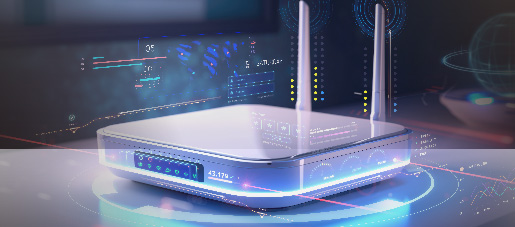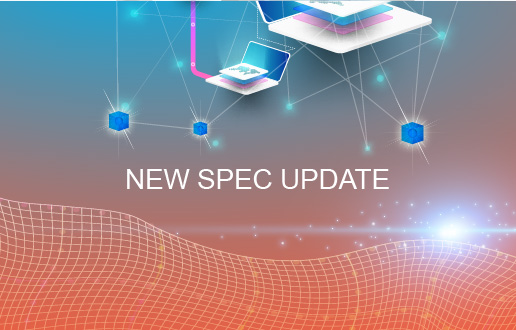In the previous article “Introduction to the Meta OCP Cloud SSD 1.0a Compliance Test”, we introduced the source and test items of OCP. In general, the OCP 1.0a compliance test follows the specification of OCP Cloud/Datacenter SSD Specification 1.0a. With the increasing demand for servers, hardware upgrades are inevitable. OCP standardization specifications are usually updated as needed. The original 1.0a version is gradually becoming insufficient, so version 2.0 was released.
The goal of version 2.0 is to meet market demands and prepare for future innovations. So what are the differences and changes between 2.0 and 1.0a? In this article Allion will compare and analyze the following items: NVM Express Requirements, PCIe Requirements, Reliability, and Endurance.
NVM Express Requirements:
This part focuses on the requirements of the NVMe spec. The OCP SSD spec is developed based on the NVMe spec, and the functions are added later. The following are the important difference between OCP 1.0a and 2.0. In addition to the NVMe spec being converted from 1.4 to 1.4b, there are also more requirements for server applications. The OCP 2.0 adds specific requirements to the original non-essential fields. OCP 2.0 takes care of the things NVMe lacks.
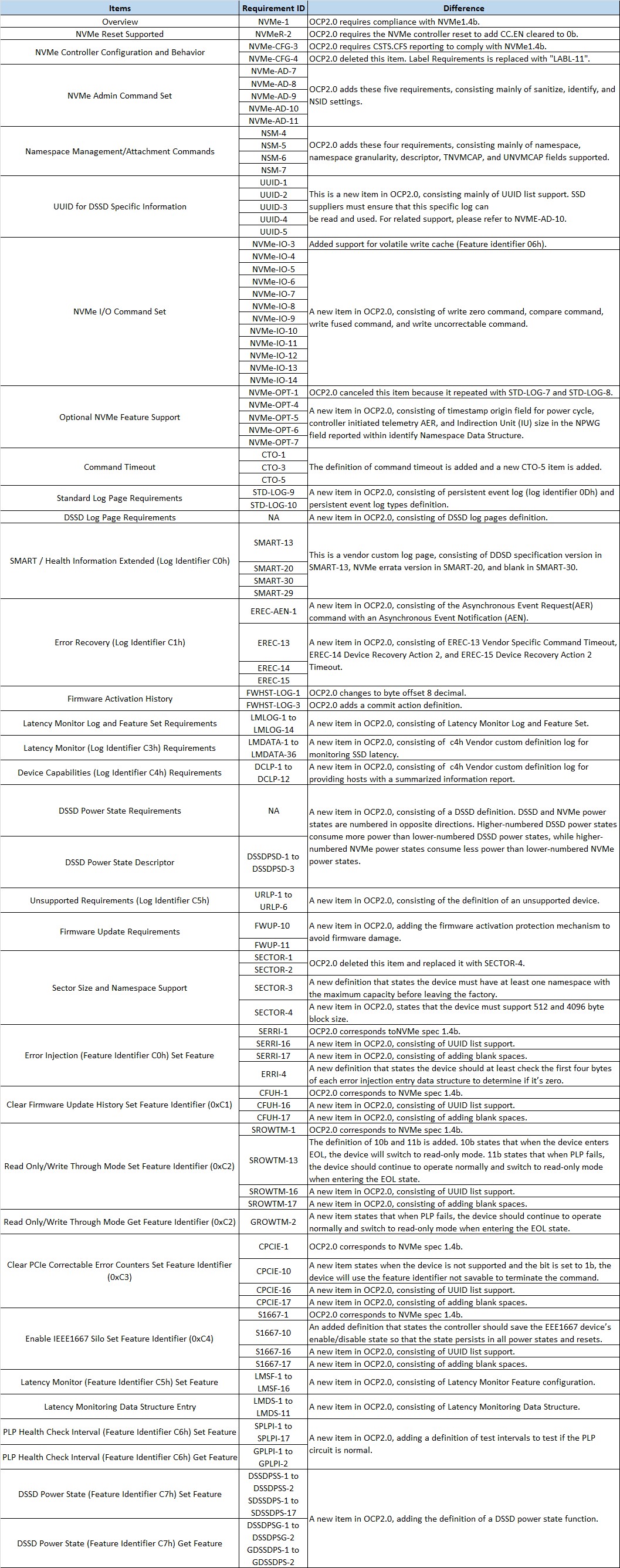
PCIe Requirements:
This part focuses on the requirements of the PCIe spec. The bottom layer of NVMe SSD mainly communicates through PCIe. The OCP spec also defines its requirements for this part. Basically, the bottom layer of the PCIe has not changed much. There are only a few changes in the requirements. The following is a table of important differences between 1.0a and 2.0.

Reliability:
This part focuses on reliability. Other than general reliability requirements, OCP will particularly focus on the reliability requirements of temperature and powering on and off, since SSDs are used in server environments for a long time.
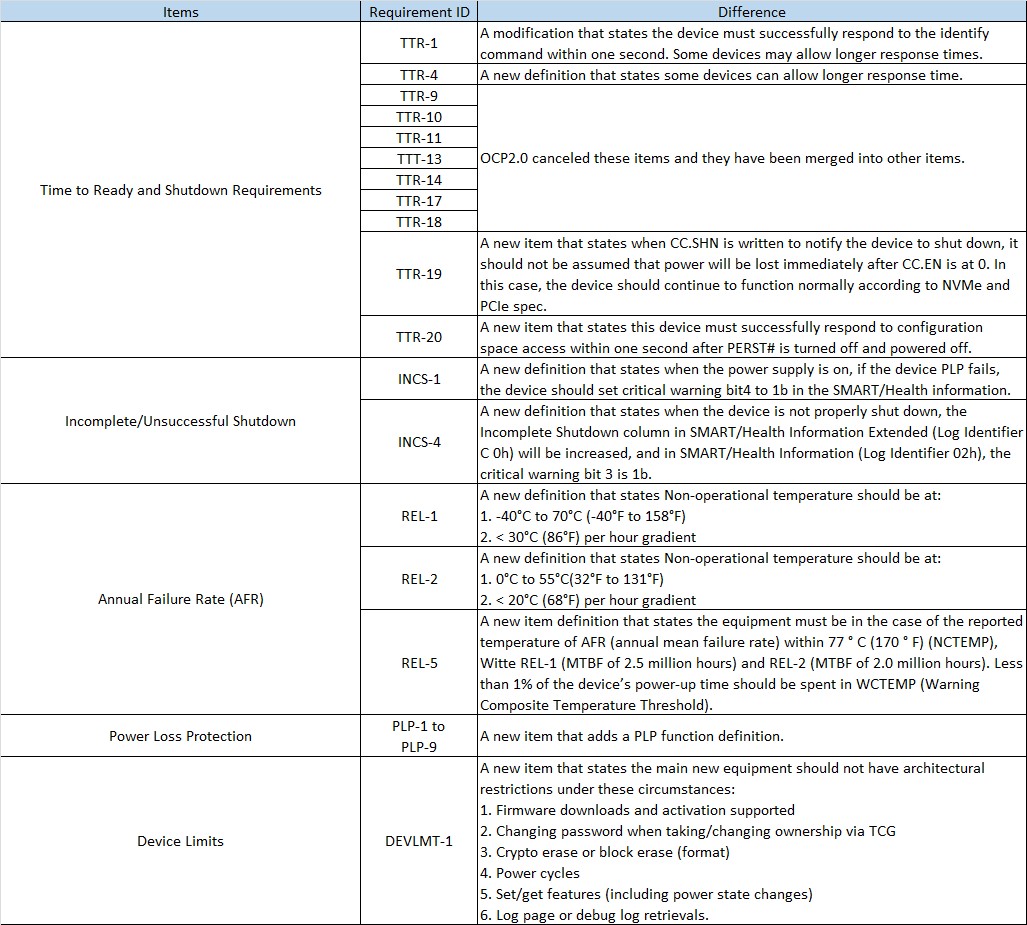
Endurance:
This part focuses on endurance. Due to servers operating at high-speeds for the long-term, OCP also has its own definition for endurance and durability. It will also focus on the device’s lifespan (end of life). The following table are the important differences between OCP 1.0a and 2.0.
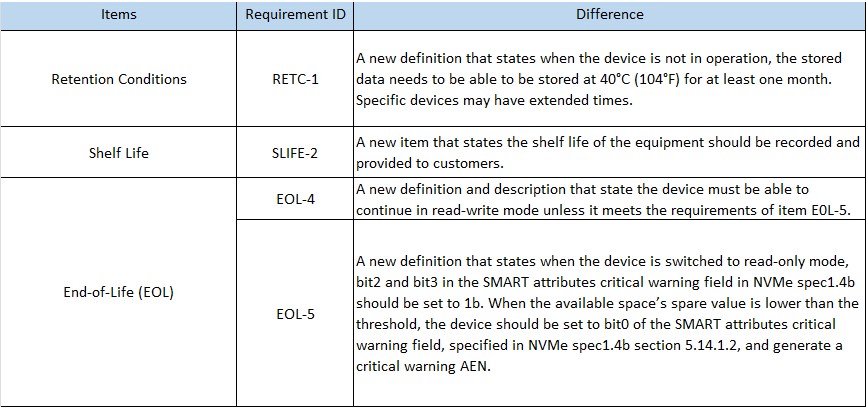
This article compares the OCP Cloud/Datacenter SSD Specification 1.0a with the first half of 2.0. It can be seen that some of the NVMe requirements have been revised and new items have been added. From this, we can understand that OCP 2.0 wants to make up for the parts that 1.0a was lacking. The newly added items are created to meet the requirements of the server environment. It’s believed that SSDs that can support OCP 2.0 will be more favored by server manufacturers in the future, and a large number of them will be used.
Allion is also actively preparing for OCP SSD compliance verifications with our complete server testing environment. We plan to add the OCP compliance testing equipment and test scripts into our testing environments.
With Allion’s professional testing verification solutions, you can discover potential problems in your product at the early stages of development. Issues we find may also be used to your advantage for future revisions and updates to your product. If you have more questions about certification or testing, please feel free to contact Allion.















